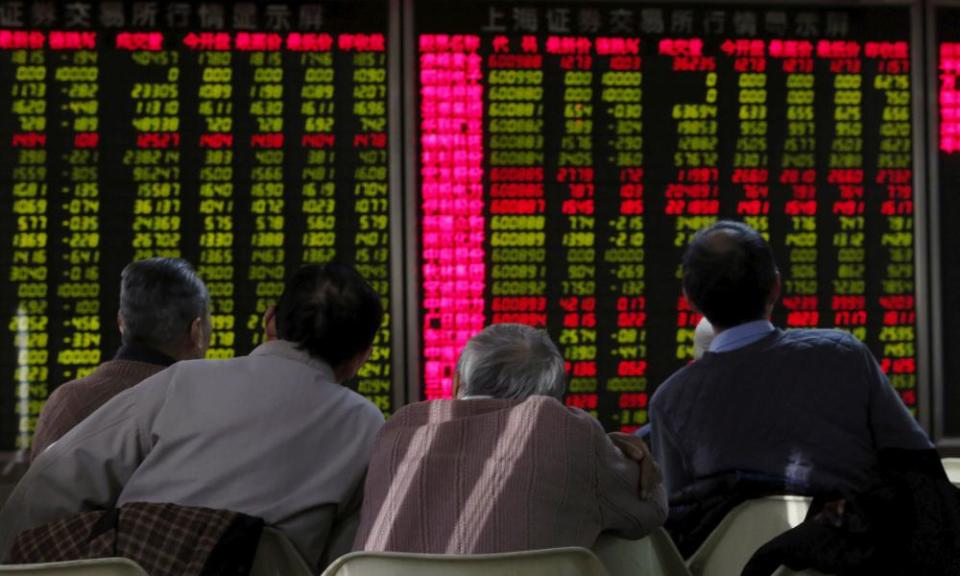Booming stock markets distract from threat of excessive lending

World leaders have been warned to guard against another financial crash after a steep rise in risky bank lending over the past year that could threaten the stability of the global financial system.
The international body that represents central banks said a recovery in global trade this year and improving levels of GDP in most countries could create complacency and convince policymakers to ignore warning signs of excessive lending coming from the financial sector.
With only two weeks until the G20 summit of world leaders in Hamburg, the Bank of International Settlements (BIS) said politicians and central banks needed to keep financial markets in check to prevent another crash.
Soaring stock markets, which have become detached from underlying values, were another sign that unjustified exuberance had replaced last year’s overly pessimistic reaction to political events such as the US election and the UK’s Brexit vote, BIS cautioned in its annual report published on Sunday.
The warning comes as Donald Trump, the US president, is expected to resist attempts by G20 members and his German hosts for closer co-operation in tackling reckless lending at a meeting on 7 July.
Angela Merkel, bruised from Trump’s decision to reject the Paris climate change deal, is understood to be keen to get the US to sign up to tough regulations on banks put forward by the Financial Stability Board (FSB), an arm of the G20.
Mark Carney, the Bank of England governor and boss of the FSB, wrote to Berlin in March demanding greater efforts to tackle the riskier parts of the financial system.
Carney, who will attend the Hamburg summit, said politicians needed to adopt tougher rules to bring shadow banking into the mainstream financial system and make derivatives markets safer.
He warned that a raft of reforms proposed in the wake of the 2008 crash had yet to be enacted while “new and emerging vulnerabilities” were piling up and adding to the number of risks that need to be tackled.
Claudio Borio, the chief economist at the BIS, welcomed a turnaround in global growth over the past year that had “strengthened considerably and [was] forecast to return to long-term averages soon”.
He said: “Economic slack in the major economies has diminished further; in some, unemployment rates have fallen back to levels consistent with full employment. And inflation has moved closer to central bank objectives.”
But he warned that financial markets and policymakers were too quick to forget the risks that brought about the 2008 financial crash. The disconnect between the exuberance of stock market investors and bond investors who lend funds to nation states was also a destabilising factor.
“There is tension between stock markets, which have soared, and sovereign bond yields [the interest rate on the debt], which have not risen much as economic prospects have brightened. And, unfortunately, the unwelcome long-term developments we termed “the risky trinity” in last year’s report are still with us: unusually low productivity growth, unusually high debt, and unusually narrow room for policy manoeuvre,” Borio said.
“Leading indicators of financial distress point to financial booms that in a number of economies look qualitatively similar to those that preceded the great financial crash.”
He said the countries at risk were not those that were at the centre of the previous crisis, such as Britain. Instead he pointed to mature economies such as Canada and Sweden that largely avoided the last crash but have since allowed huge borrowing and property booms that make their economies vulnerable to a crash.
The largest emerging economies of China, India and Brazil were also vulnerable after a period of rapid growth, much of it based on cheap credit.
“The strong post-crisis growth of foreign currency debt adds to vulnerabilities in some countries. Indeed, given the dominant global role of the US dollar, dollar funding remains a potential pressure point in the international monetary and financial system.”
Central bankers largely support moves by the Federal Reserve to increase interest rates over the past 18 months, from 0.25% to 1.25%, but have reservations about the knock-on effect to countries that have borrowed excessively in dollars.
The rising cost of borrowing in dollars is widely expected to increase bankruptcy rates in countries such as Turkey and Brazil, where private companies have expanded quickly using dollar-denominated debt.
But despite these dangers, BIS warned that “keeping interest rates too low for long could raise financial stability and macroeconomic risks further down the road, as debt continues to pile up and risk-taking in financial markets gathers steam.”

 Yahoo Finance
Yahoo Finance 